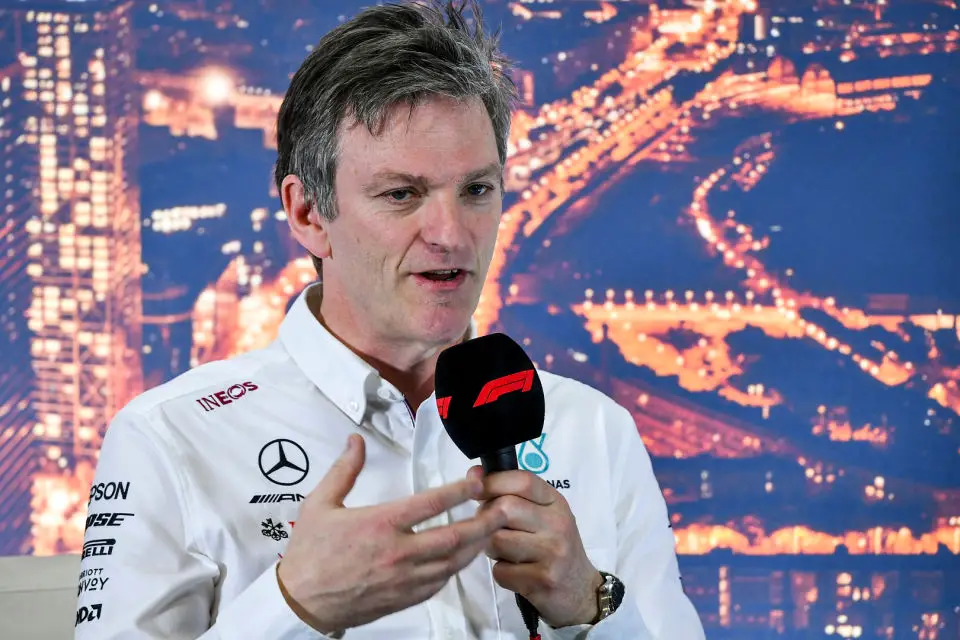Mercedes’ James Allison Defends F1 Inter-Team Relations Amid McLaren’s Concerns for 2024 Season
In a recent development within Formula 1, Mercedes’ technical director James Allison has expressed his confidence in the current regulations governing inter-team relations, contrasting with McLaren’s recent apprehensions. Allison’s remarks highlight his trust in the rules’ effectiveness to prevent the transfer of intellectual property between teams.
Key Takeaways:
- Contrasting Stances: Mercedes and McLaren hold differing views on the issue of technical collaborations between F1 teams, specifically between Red Bull and its junior team AlphaTauri. While McLaren CEO Zak Brown voiced concerns over potential unfair advantages, Mercedes’ James Allison expressed confidence in the existing regulations.
- Regulatory Framework: Allison emphasized the strictness of the current F1 rules, which limit the extent of technical data and parts exchange between teams to ensure no intellectual property is improperly shared.
- Historical Context and Rule Evolution: The technical director referenced past relationships, like that between Mercedes and the team now known as Aston Martin, to explain how these partnerships influenced the tightening of regulations, emphasizing that current rules strictly limit technical and sporting relationships between teams.

In a recent turn of events in the Formula 1 world, Mercedes’ technical director James Allison has openly disagreed with McLaren’s stance on the poignant subject of inter-team relations heading into the 2024 season. This divergence of opinions comes in the wake of McLaren CEO Zak Brown’s significant concerns about the relationship between Red Bull Racing and its sister team, AlphaTauri.
James Allison, known for his detailed understanding of F1’s intricate regulatory landscape, stated with conviction, “The rules are very tight about not passing on anything that could be regarded as intellectual property.” This comment directly counters the apprehensions raised by McLaren, suggesting a contrasting interpretation of the rules and their effectiveness.
The issue at hand revolves around the exchange of technical information and components between Red Bull and AlphaTauri. McLaren’s concerns were heightened after AlphaTauri’s adoption of certain features from Red Bull’s car design, which ostensibly contributed to its improved performance. Looking ahead, AlphaTauri’s plan to borrow Red Bull’s front suspension for the 2024 season has further fueled the debate.
Allison, addressing the controversy, shared his perspective with Motorsport.com: “I’m not entirely sure what the nature of the relationships between those two teams is, but I am clear on what the rules are. And it is that other than the very limited part of the car where you are permitted to supply parts, and therefore a certain amount of technical data alongside those parts, in every other respect the rules are very tight about not passing on anything that could be regarded as intellectual property from one team to another.”
He further elaborated on the nature of permissible relationships between F1 teams, clarifying, “If two teams have a strong relationship with each other, it can only really be a strong commercial relationship. It cannot be a strong technical or a strong sporting relationship because the rules forbid that.” Allison’s reference to the past relationship between Mercedes and what is now Aston Martin underlines how previous collaborations have shaped the current regulatory framework.
As the F1 community looks toward the 2024 season, the debate over team collaborations and their impact on the sport’s competitive integrity continues. Allison’s firm stance on the issue, backed by his deep understanding of the rules, offers a reassuring perspective that the regulatory system in place is robust enough to maintain fairness in the sport.




